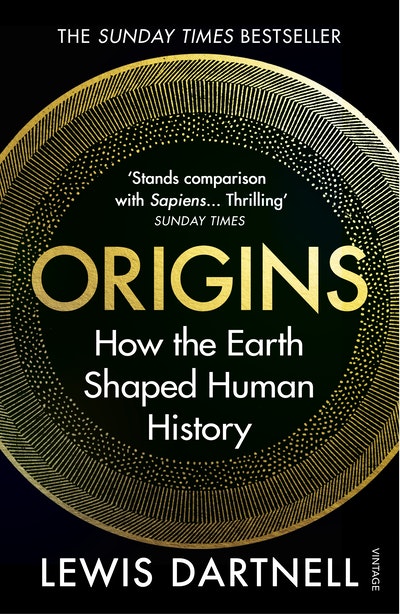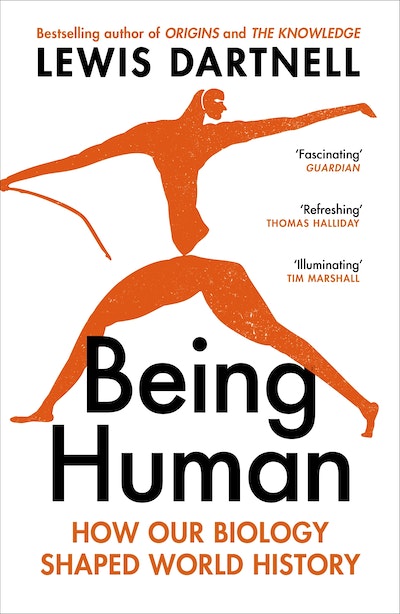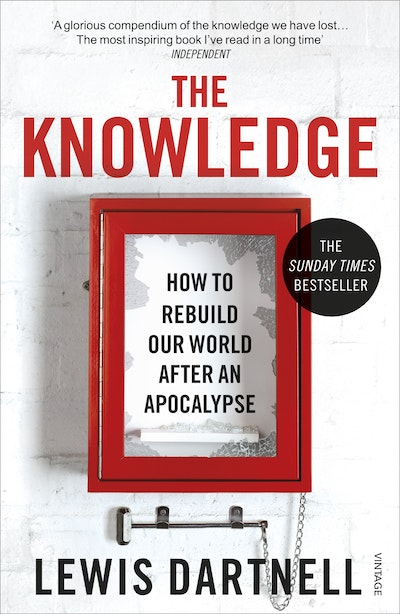- Published: 24 January 2019
- ISBN: 9781473547339
- Imprint: Vintage Digital
- Format: EBook
- Pages: 352
Origins
How the Earth Shaped Human History
- Published: 24 January 2019
- ISBN: 9781473547339
- Imprint: Vintage Digital
- Format: EBook
- Pages: 352
An original and timely way of looking at human history through the materials and natural resources that our species has employed to such effect. It should be read by everyone who ponders how long exploitation can continue on a finite planet.
Richard Fortey
Endlessly enthralling, Lewis Dartnell explains why the history of humanity, and of human cultures, both take dictation from the deeper history of Earth herself - from broad generalities to surprisingly specific details. An entertaining and informative essay on contingency - and worthy successor to the writing of Stephen Jay Gould.
Ted Nield
Dartnell has found the perfect blend of science and history. This is a book that will not only challenge our preconceptions about the past, but should make us think very carefully about humanity’s future
Simon Griffith, Mail on Sunday
A sweeping, brilliant overview of the history not only of our species but of the world. Whether discussing the formation of continents or the role that climate (and climate change) has had on human migration, Lewis Dartnell has a rare talent in being able to see the big picture – and explaining why it matters.
Peter Frankopan, author of THE SILK ROADS
What a treat to see history through the eyes of an astrobiologist! Our history was shaped profoundly by the laying down of iron beds two billion years ago, by the tectonic forces that ripped open the African rift valley, by the slow cooling of the earth that began 50 million years ago, and by the evolution of grasses! Lewis Dartnell’s absorbing new book shows, with many vivid examples, how deeply human history is embedded in the history of planet earth
David Christian, author of ORIGIN STORY
‘Extraordinary… Origins is one of those rare books that dissolves mystery through the steady application of sublime lucidity. While reading it, I kept thinking: "Oh, that makes sense…" … Dartnell understands geology, geography, anthropology, physics, chemistry, biology, astronomy and history. That’s quite an achievement, but what makes him special is the way he communicates the interconnectedness of these disciplines in a clear, logical and entertaining way…Superb.
Gerard DeGroot, The Times
Dartnell is an eloquent, conversational guide to these daunting aeons of time
Katy Guest, Guardian
Origins by Lewis Dartnell stands comparison with Yuval Noah Harari’s Sapiens…A thrilling piece of Big History
James McConnachie, Sunday Times
Dartnell’s story is beautifully written and organized. His infectious curiosity and enthusiasm tug the reader from page to page, synthesizing geology, oceanography, meteorology, geography, palaeontology, archaeology and political history in a manner that recalls Jared Diamond’s classic 1997 book Guns, Germs, and Steel
Nature
Origins, snappily written, is a fast read … fascinating
David Sexton, Evening Standard, *Book of the week*
Dartnell has an easy, light touch that mixes well with his considerable knowledge. The result is a first-class read – and an important one
Robin McKie, Observer
Origins’ strength lies in the way it manages to conjure a tight, linear narrative from what would otherwise be an overwhelming wealth of insights, a feat aided by Dartnell’s soothing, conversational writing style… a captivating and enriching read, with as much to recommend it to those with an interest in geophysics as to students of human history and civilization.
Ian Randell, Psysicsworld
Origins is like a well-crafted jigsaw puzzle. Each piece fits together beautifully to build up a complete picture of the deep connections we have to the blue marble we call home… a thoroughly satisfying read for anyone interested in how our planet drove our history, and how everything is connected
Jenny Winder, BBC Sky at Night, *Book of the Month*
Big history is back… Origins is a bravura survey that captures our global zeitgeist and emphasises the limits of short-term historical and political thinking
Jerry Brotton, BBC History
A thrilling slice of big history and as good as Harari
Sunday Times, *Summer Read of 2019*
Enthusiastic and brimful of facts… Dartnell’s great achievement is that while he crams in a great deal, the reader doesn’t feel rushed. It moves from the dawn of agriculture, to ancient Mesopotamian merchants to the coal-fields of England without a bump
Jon Wright, Geographical
Instead of looking at what we have done to the Earth, he examines what it has done to us, interweaving the physical and social sciences in a clear, logical and joyously entertaining way… [a] wonderful book
Gerard DeGroot, The Times, *Books of the Year*





